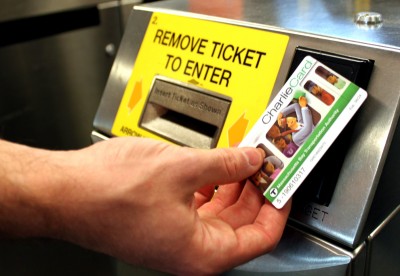Richardson & Cumbo, a civil litigation law firm, filed a class action Wednesday against the Massachusetts Bay Transportation Authority and Keolis Commuter Services on behalf of all monthly commuter rail pass holders, the firm announced in a Friday press release.

The complaint alleges that the MBTA and Keolis broke a contract with commuter rail pass holders by providing subpar service throughout the months of January, February and March.
Keolis took out a full-page ad in The Boston Globe on March 5 apologizing to customers for the poor service they encountered this winter, the release stated. However, Keolis failed to make refunds or explain why it had failed its customers.
Robert Richardson, a spokesman for Richardson & Cumbo, described how bad the commuter rail service had become, particularly for those living in the suburbs.
“Everyone that has had to rely on it for transportation knows that this winter was a disaster especially out here in the suburbs, where people buy monthly services and depend on the commuter rail and Keolis to give them a way into work,” Richardson said. “When they buy these passes, they are expecting a certain quality of service.”
Massachusetts Gov. Charlie Baker’s panel investigating the MBTA found that it was underfunded, had ineffective workplace practices, shortsighted expansion programs and lacked accountability and focus.
Richardson said this lack of accountability is one of the main things the class action is meant to address, as the goal of the class action is to bring about change within the transportation system.
“The bigger picture is bringing about change that has a commuter rail system and a transportation system that we can rely on,” Richardson said. “We’re thinking about hosting the Olympics, and we need that better infrastructure if we want to do that.”
The class action lawsuit is about more than simply being refunded money for monthly passes. It’s about creating a transportation system that commuters can depend on, Richardson said.
“Some people think that people just want their money back,” he said. “We do want money back, but there is a bigger piece of it. More importantly, they want service going forward that they can rely on. Some people are paid hourly, and they need something reliable in the future, and they need change.”
Several students expressed how poorly the MBTA ran this past winter and how desperately the system is in need of accountability.
Sarah Iwany, a junior in the College of Arts and Sciences, said filing a class action against the MBTA might only make matters worse due to their financial problems.
“I don’t have a monthly T pass, so it doesn’t really affect me very much,” she said. “I have legs, so I can get places. If I were handicapped, it would be a much bigger issue, but I am able to walk places, so it is not as much of a problem. I don’t think suing the T is going to really help. The entire issue with the T is that they don’t have enough money and a lawsuit would just take more of it away.”
Ashley Deokaran, a freshman in the Questrom School of Business, said the T failing to run affected everyone and forced them to seek alternative methods of transportation that were often expensive.
“Definitely the T not running has hindered my ability to travel around Boston,” she said. “There have been instances where I need to go to the doctor and obviously, I need to take the T and when it’s not running, then I have to go take an Uber. Ubers are expensive, and they have a surge which jacks up the price two to three times the original price, which costs a lot of money. A trip that would have been $2.50 on the T ends up costing me an additional $8.”
Several residents said the lawsuit is unfounded because the MBTA cannot control extraordinary weather circumstances.
Tawnya Smith, 74, of Brighton, said the weather was just a natural disaster and closures during that time were understandable.
“You can’t blame the MBTA too much. It is unfortunate that they had to deal with this kind of winter, which is very unusual and yes, they were not prepared for this kind of winter,” she said. “Otherwise though, it was a natural disaster and people have to deal with them all the time. You can’t just take legal action for that.”
Ariane Nick, 51, of Jamaica Plain, said those who purchased monthly passes should be understanding when weather stops the trains from running.
“You know when you buy monthly passes like that, you buy them knowing that there is not insurance on them,” she said. “I think most people who have monthly passes would not expect to be paid back once something like bad weather happens. While the transportation system does have a lot of problems that need to be fixed, litigation is probably not the best solution.”





If this article is correct, then this is frivolous suit. Keolis did not provide refunds because the passes are not for Keolis. Keolis is only the operator. All fares collected and proceeds from pass sales go to the MBTA. Also, the pass is for rides, nothing more. There’s no contract or promise of any sort of specific level of service that the customer has agreed to when purchasing the pass.
I agree that the MBTA should do more for February pass holders, but suing the operator, who has nothing to do with the passes besides checking them to ensure the MBTA has their money, is stupid.